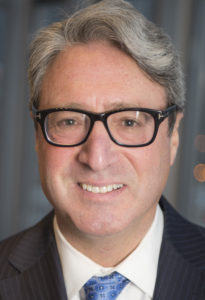This presentation looks at the cost of collecting the income tax. The IRS overhead itself represents the direct cost to the government in generating this revenue. Beside that there is the burden put on the tax payer in preparing his return, in the case of an audit there may be the cost of representation before a tax court. You also become aware of the vast amount of human resources wasted on this activity for the revenue generated.
Metropolitan Planning Council’s Alden Loury will discuss his research into the costs that racial and ethnic segregation impose on all of us here, and might be persuaded to hint at the recommendations to come from phase 2 of the study. We have a post with a bit more information.

ProPublica Illinois investigative reporter Jason Grotto (formerly with the Chicago Tribune) has produced several major research stories about problems with real estate assessments in Cook County, as well as with the Assessor’s office itself. He’ll join us to talk about how and why he undertook this work, what’s wrong with the Assessor’s office and how it could be repaired, how the property tax would function if it were competently administered, and, if we’re lucky, how the tax could be restructured to improve fairness and better fund public services while promoting economic opportunity.
Join us to learn about some of the practical difficulties in bringing competence and efficiency to the administration of what could be a very fair tax.
PREREGISTRATION MANDATORY: Due to building policies you must pre-register by email or or by phoning us at 312 450-2906
The annual gathering of North American activists and educators promoting economic justice. The date and location are set, but other details will be posted to their site as they are determined.
Adam Schuster will present “Diagnosing Illinois’ Fiscal Sickness and Prescribing a Cure” to the Henry George School. He is working on a 5-year fiscal plan to save the state and pay off its debt.
Adam is budget and tax research director at Illinois Policy Institute. Prior to joining the Institute, he worked in the Illinois Department of Labor to reduce unnecessary regulatory burdens and on an initiative to tie state spending to measurable outcomes.
Registration is required for this event. Those attending will be required to pick up a badge from building security to come upstairs. Please tell us you’re coming by sending email to info@hgchicago.org or calling 312 362-9302.

Decades before Wealth of Nations, Adam Smith wrote what he seems to have considered a superior work, Theory of Moral Sentiments. He wrote:
How selfish soever man may be supposed, there are evidently some principles in his nature, which interest him in the fortune of others, and render their happiness necessary to him, though he derives nothing from it except the pleasure of seeing it.
Wikipedia asserts:
Smith critically examines the moral thinking of his time, and suggests that conscience arises from dynamic and interactive social relationships through which people seek “mutual sympathy of sentiments.”[74] His goal in writing the work was to explain the source of mankind’s ability to form moral judgement, given that people begin life with no moral sentiments at all. Smith proposes a theory of sympathy, in which the act of observing others and seeing the judgements they form of both others and oneself makes people aware of themselves and how others perceive their behaviour.
The Theory of Moral Sentiments has been printed in numerous editions, and is also available free on line. Smith revised the book throughout his lifetime; it’s best to avoid the first edition, and choose one published after his death in 1790.
In this session we’ll discuss parts 1-3 of the book, taking up parts 4-7 on November 20,


